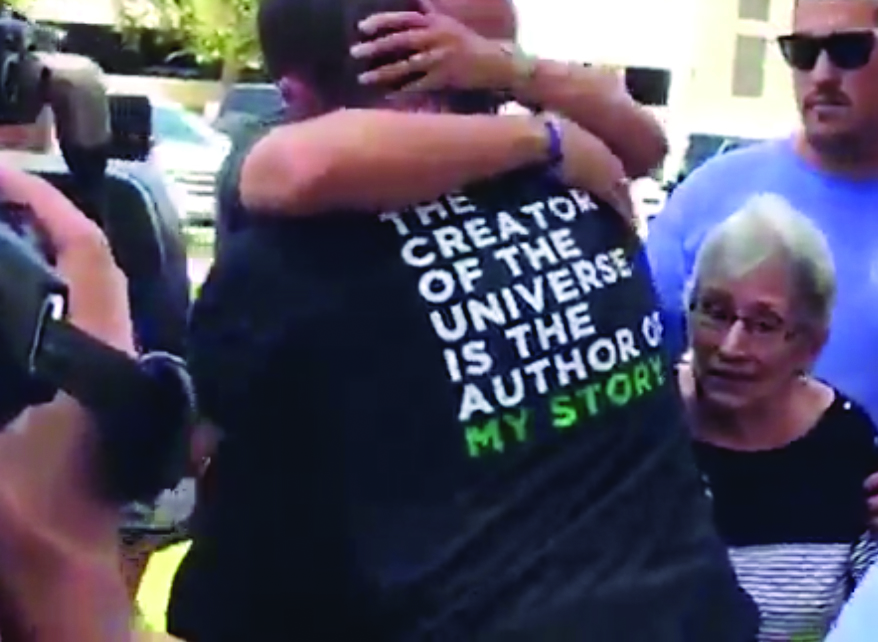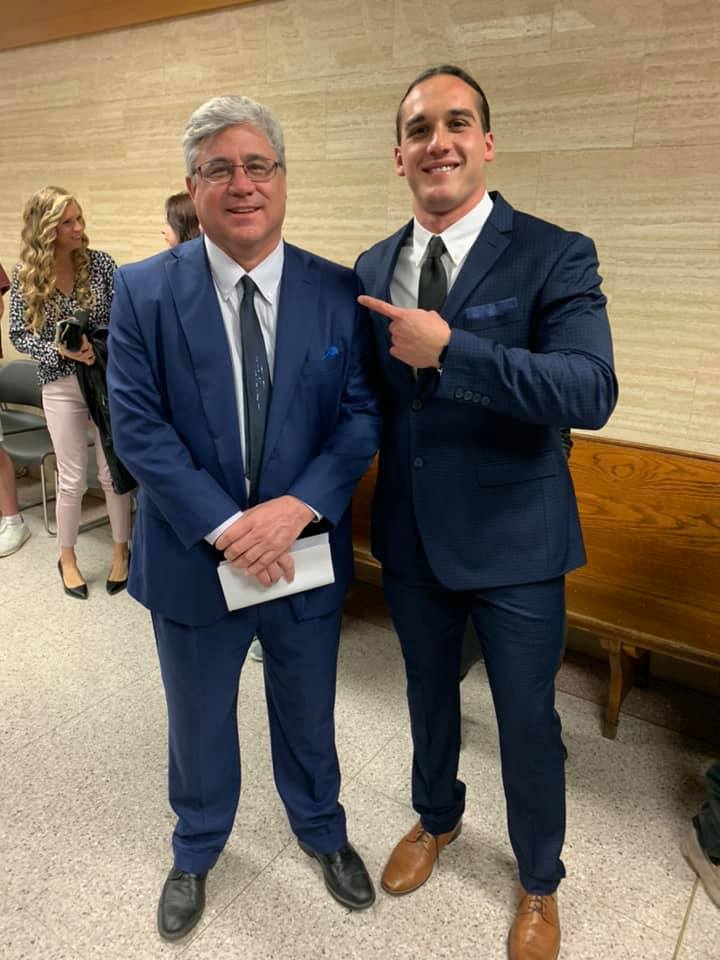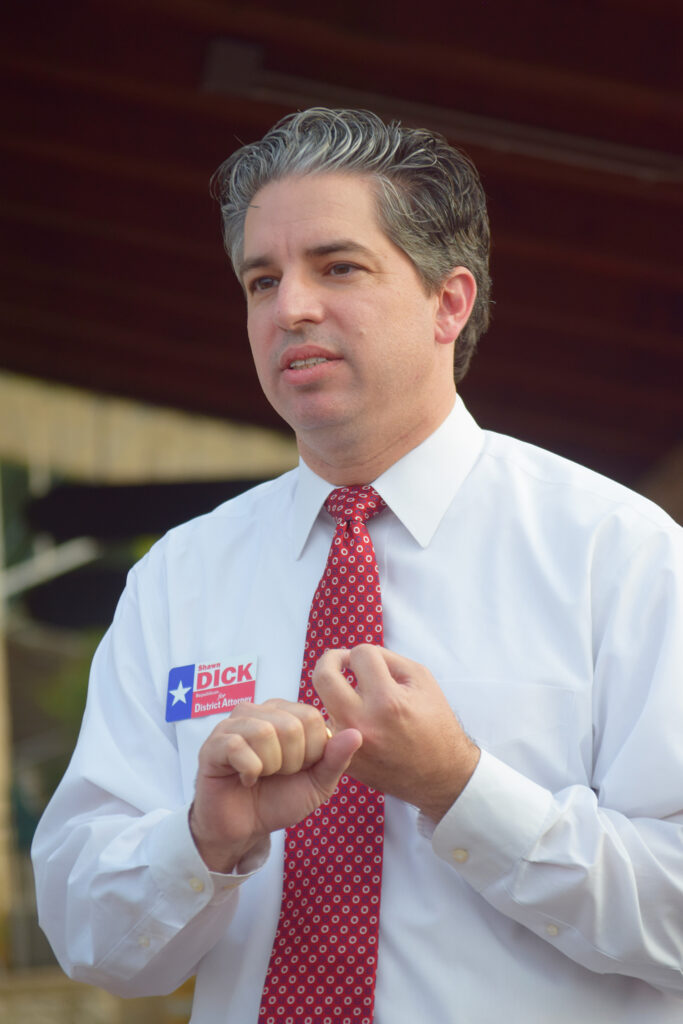In July, Showtime network aired a five-part documentary series about the trial, conviction, and exoneration of Greg Kelley. Donna King was the Judge upon whom rested the immense, and unusual burden of getting, finally, to the truth.
Findings of actual innocence are rare in the justice system. In cases of child sexual abuse, a finding of actual innocence without a victim recantation, or DNA evidence is unheard of. But that is exactly what Judge Donna King spent nine months tackling on the Greg Kelley case.
Judge King explains, “A judge receives new evidence and weighs it in conjunction with the old. The duty, simply put, is to consider, ‘If the jury knew then what I know now, would they have still convicted?’ In the original trial, unfortunately for Mr. Kelley, the jury did not hear all the information that would have acquitted him, a significant portion of which existed at the time of his original trial.”
Even more rare is that because new evidence for Greg’s claim of actual innocence did not fall within the normal grounds for which relief is granted, his case established an entirely new category.
There being no DNA or victim recantation in Greg’s case, the resulting legal basis focused on the validity of new circumstantial evidence. The new evidence included old evidence never pursued; a conflict of interest that existed with his original trial attorney, who had represented several members of the family of the owner of the day care center where the assault occurred; and deficiencies in the initial law enforcement investigation.
The Judge illustrates; “Let’s say a conviction was based on Facts A, B, and C; but a legal team keeps the case alive and gathers new evidence, as [Greg’s girlfriend] Gaebri was diligent in doing. The legal team then presents a Writ of Habeas Corpus to the trial court, based on A-C, and adds Facts D, E, and F. The totality of all of those facts leads to a new conclusion.
“It was my solemn duty, with many boxes covering my floors, to pore over the trial transcripts, exhibits, and videos; and conduct a new inquiry, listening to many, many new witnesses. I came to believe it had been a perfect storm, with all parties blinded to a certain extent by tunnel vision where the suspect was concerned. There were also some who turned a blind eye to the suggestive and persuasive interrogations that resulted in a second charge with another child at the daycare. The prosecutors at Greg’s trial did not appropriately question the second charge, which ultimately strengthened their first case against Mr. Kelley.”

Habeus Corpus (release the body) Convicted persons may file this writ to compel law enforcement to bring them to court to determine if they are being held legally. Writs may be filed at any time. Because Greg Kelley waived his right to appeal, the writ sent to Judge King requested relief based on a foundation of Constitutional violations, and actual innocence.
Kelley’s Impact
After Judge King made her findings, they had to be reviewed and decided upon by the Court of Criminal Appeals before Greg could be exonerated. The Court did not write an opinion on why they unanimously agreed with Judge King, but she suggests that their Order affirming her determination that Greg be declared “actually innocent” opens pathways for future defendants to seek relief as Greg did. She cautions that this type of relief claim is very narrow—it might apply to fewer than one in 100,000 cases. “Habeus corpus is very case-specific, and there will be people in the system who throw everything they can at a writ. If the court had filed an opinion with their ruling, essentially explaining why they ruled, it might open the door to many subjective interpretations. We must, however, always consider writs of this type because justice requires it.”
Weighty Responsibility
“People see themselves, or their kids in Greg. He is a typical, all-American, boy and it makes us all realize it can happen to anyone.”
Judge DonnA King
Drilling down on a writ of this type, she says, a judge must determine if there is a legal issue; a Constitutional violation that needs further examination. “The judge ‘drives the train on the process.’ I have a toolbox of options allowed by the law and I can choose to just review the claims, or have a hearing to consider the claims fully. Beyond the legal responsibilities of my office, I struggled personally to be certain that my decision was about truth; not allowing a guilty person back on the street because of a technicality. It was equally important not to send an innocent person back to prison for a crime not proven in the original trial.”
Although this kind of case is rare, Judge King says she had a feeling it would be coming to her even before she took her oath of office. The guilty verdict was rendered in July 2014 and she was appointed to the bench in October of that same year. She received the writ in early 2017 and studied it day and night, outside her regular docket, for nine months before making a determination of innocence. “As a trial lawyer and a judge, Greg’s case opened my eyes not only to the real possibility of justice not being served, but being completely and systemically denied from day one. None of the safety nets we take for granted worked for him, and for everything that went wrong in the first trial process, it took a monumental effort to fix it.”
The Justice Community
Having been a criminal attorney for 22 years prior, the Judge says this was the most challenging case of her career. While there is always great emotion and a sense of urgency with a child victim, she always had confidence in the system in which she worked. “This is a county where we all know each other; lawyers, prosecutors, police officers, and former judges; we are tight knit. It was a strange dynamic to perform an ‘autopsy’ on the system that came down to people I knew. It is even more astonishing when you consider how recently Michael Morton suffered the same injustice.”
Judge King says she felt great satisfaction when word came that her findings would stand, and Greg would be officially declared innocent. “It was a waiting game for nearly two years while the Court of Criminal Appeals made its determination. You would think I would have worried more over time, but the longer I was removed from it, the more comfort I felt. Originally, when I turned over my findings, I sort of went through a grieving process, because it was all very personal. It was traumatic upending a justice system and process that included colleagues whom I respected; I was shocked and disappointed by what I found when I was doing my job. But as time went on, I was able to put things in proper perspective and rejoice that the court reached the same conclusion. I was grateful we all had closure.”
At the end, Greg was the only original player, but Judge King, District Attorney Shawn Dick, and Greg’s attorney Keith Hampton recognized that success was due to no one in particular. “It hit all of us what we had been a part of. I count my blessings to have been part of a process that was so important. Williamson County and our justice system are my home and, while we can’t change what happened, we have obligations to uphold the duties of our offices. The system works when everyone is committed to their best, and the roles they have; police, defense attorneys, prosecutors, jurors, and judges.”

The New Attorney(s)
Keith Hampton became Greg’s attorney shortly after his conviction in 2014. He has dealt with many high-profile cases like Greg’s, but he affirms that proving a person’s innocence without DNA or a victim recantation is the most difficult because, he says, the burden of proof is very high. “What Greg’s case did was prove that it can still be done. It looked pretty dark for an innocent person, sitting in prison, continually getting bad news,” he says, “But, together, we were able to unravel the case, come back together, and he was able to go home.”

(Photo Facebook/Greg Kelley used with permission)
Keith is certain that Greg was framed; that every bad thing that could have happened to destroy him, did. “There was a great deal more than what appeared in the documentary, including what I felt was arrogance on the part of people who destroyed evidence, but the program would have been 10 hours long.”
Keith is no stranger to helping innocent people, but he still believes Greg’s case to be very unique. “There were so many things stacked against him. People have been patting me on the back and said he was lucky to have me as his lawyer, but I insist that all of this would not have happened if Shawn Dick wasn’t the D.A., or if Donna King hadn’t been the judge. We had a good team at every step.”
In fact, it was Shawn Dick who first remarked that Greg’s conviction was “a perfect storm of mistakes and it took a perfect storm to rescue him.”

Shawn was elected District Attorney in 2016. He agrees that, despite the different roles each person played, everyone’s sole purpose was to fight for the truth. “Greg’s case did not fit into any of our normal legal mechanisms,” he says, “so we learned many things about the process while we were in it. The more we sought the truth, the clearer it became that there was an injustice done.
“But, I have an amazing team of skilled lawyers; Lindsey Roberts, Rene Gonzalez, and Bridget Chapman. Each brought unique experience to this case and their combined wisdom helped us reach a conclusion.”
While Shawn and his office have received tremendous support and validation for their work, there are some individuals still filing briefs against him and his office’s opinion on the case. “Some people believe ‘Outcry’ is propaganda, and people they respect are being criticized unfairly in it. It is unfortunate there are still forces aligned to fight this fight without an understanding of the truth.”
The bottom line for the District Attorney’s office is that the Kelley case is one of many, and Shawn affirms what he believes the documentary producer intended to show; “The Williamson County District Attorney’s office is professional, and has brought trust back to the system. It is clear that the Kelley case is unique across many lines, and we have received an outpouring of praise from viewers and law enforcement all over the United States, Canada, and as far as Australia. We don’t look for appreciation because we are only doing what is right, but I am glad my prosecutors will get the recognition they deserve for all the other good work they do.”
At several points in the case, and while filming the documentary, Shawn reflected on the fact that no one hopes a situation like this will be their legacy. “In my office, part of my philosophy is that I never want to hear ‘That’s how we’ve always done it’ or ‘That’s not my job.’ So, I was quite pleased when [producer] Pat Kondelis said he has been all over, making movies, and the transparency and integrity the people of Williamson County showed him was admirable. What you see in the show happened a long time ago, and what you’re seeing now is a group of professionals still working to change it.”
That’s a good legacy.
